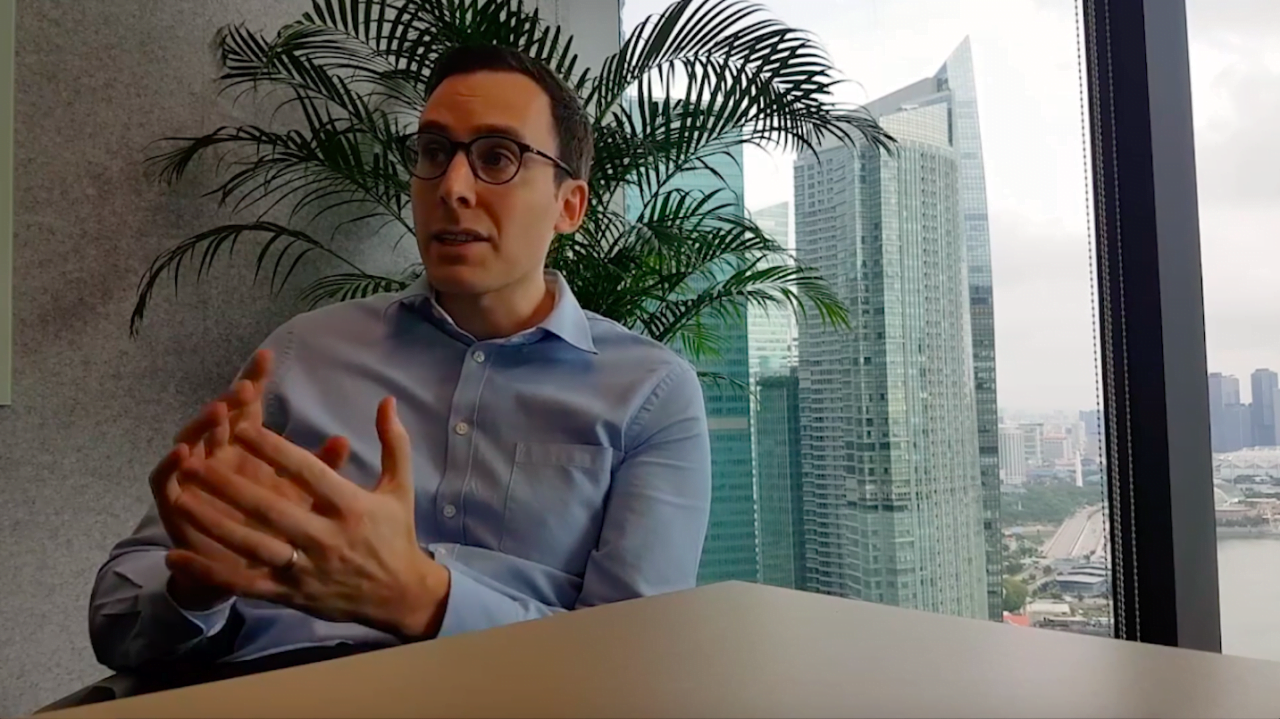Interview by Utsav Rakshit | Edited by Amelia Chew
TechLaw.Fest 2018 will take place from 4 to 6 April 2018 in Singapore, bringing together leading thinkers in the space of Technology Law and leading makers in the space of Legal Technology. In the lead-up to TechLaw.Fest, the LawTech.Asia team will bring you regular interviews and shout-outs covering prominent speakers and the topics they will be speaking at TechLaw.Fest.
This week, LawTech.Asia sat down for a chat with Matt Pollins, Partner at CMS Singapore and CMS “Innovation Champion”. He leads the Commercial and Technology, Media and Communications team. Matt will be speaking at the Tech of Law Exchange on the panel titled Deliberate Disruption: A Tale of Three Law Firm Tech Journeys.
What steps has CMS taken to embrace new technologies?
CMS has been investing in legal technology for the past 20 years. If you rewind to the 90s, CMS first started using platforms like document automation in our Real Estate and Finance practice groups.
I think what’s changed in the last couple of years has been the focus on things like artificial intelligence and machine learning. What we’ve started to do more recently is roll out artificial intelligence solutions in practice areas like corporate M&A and litigation. Those are the two most obvious uses for that kind of technology, although there are others. To give an example, we recently helped a client churn through a review of something like ten thousand documents in a matter of hours. In the past, that would have taken potentially weeks of lawyer time. We are actively using AI platforms like Brainspace and Kira to augment what we do for clients.
The tools I’ve described so far are used internally within the CMS business to streamline what we do for clients. The other projects we are embarking on are more external-facing. These include things like e-learning platforms and interactive tools to assist clients get up the knowledge curve on regulations and to meet compliance obligations. Another thing we are offering is solutions like “contracts as a service”. That means moving from simply generating a static document template to building interactive document automation platforms that lawyers and non-lawyers can use to generate their own template documents. For instance, our Oil and Gas team recently launched an interactive portal with hundreds of templates to help clients in generating draft documents from scratch.
Essentially, we see success in technology as a combination of internal-facing tools to improve services and efficiency and external-facing tools and products for our clients. Tech is now at the core of where we, as a firm, are going and that is a message that has come from the very top of the organisation. We have a group of “Innovation Champions”, of which I am one, who together are responsible for driving innovation with the firm. Every sector and service line is represented, which shows you how important this issue is for our firm.
What kind of technology is transforming the nature of practice?
Artificial intelligence is the one making all of the headlines at the moment. There is a lot of hype around that as we are starting to see real uses for AI, such as high volume document review. For example, in a M&A process, AI can quickly pull out the assignment clauses or the change of control clauses from thousands of documents. In Europe, we are using a technology called Brainspace which is a spin-off of a Central Intelligence Agency (CIA) technology. It is used for litigation projects where there is a need to churn through vast amounts of evidence before sieving out and linking pieces of information.
AI is exciting and has multiple applications. However, what we are also seeing is there are also a lot of other, non-AI technologies out there that can have a a big impact as well. These include document management systems, knowledge management systems and e-learning platforms. In other words, AI and process automation may be the end game but there are also a lot of even “easier wins” out there and available to companies. And it is very difficult for organisations to leapfrog from “low-tech” to AI. I strongly believe that they should start with those easy wins and build from there.
What factors cause the greatest inertia in law firms not embracing technologies?
Today, risk really means standing still as you will be overtaken by your competitors.
Well, let us be honest. Lawyers are a rather risk-averse bunch. Part of our law school training is trying to identify the risks of things. However, there has been a kind of mindset shift. The definition of risk is changing. Risk used to be doing something new, like adopting a new technology that has never been used before. Today, risk really means standing still as if you stand still you will be overtaken by your competitors.
Paint a picture of a law firm in 2025.
I see a future that is a combination of smart people and smart technology. Of course you have to have the technology – that is what we are going to be talking about at the conference. It would be a key tool that every law firm and in-house legal team would need to have.
That said, you also need to have smart people. I think there will still be a very big role for creative, entrepreneurial, commercial lawyers. They will need to shape transactions and lead their business through some of the new and challenging regulations that are being introduced around the world. These are exciting times for lawyers who are forward-thinking and understand the potential for technology.
–
This piece of content was jointly produced by LawTech.Asia and the Singapore Academy of Law.
An event not to be missed! LawTech.Asia readers are entitled to an exclusive promo code that provides a 20% discount off a 3-day pass for TechLaw.Fest 2018. Subscribe to the LawTech.Asia mailing list to receive your promo code today.
